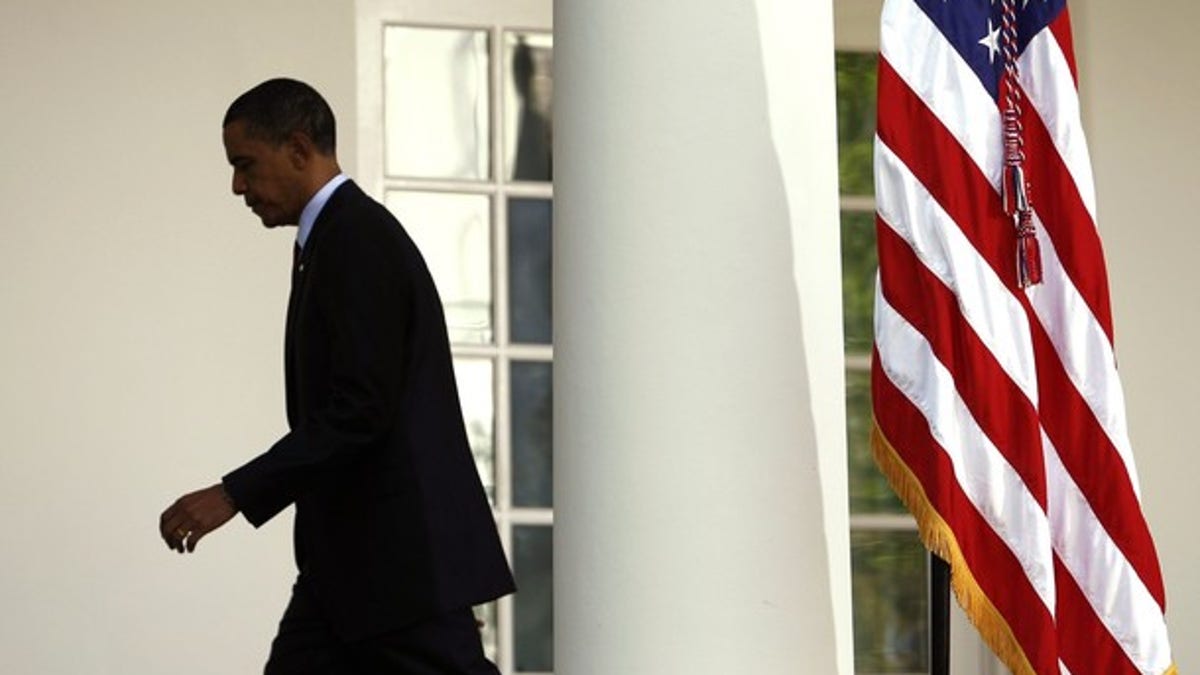
Reuters
What would it take to blow up a large part of Manhattan? Or Chicago? Or Los Angeles? A fairly primitive atomic bomb composed of some 55 pounds of highly enriched uranium packed tightly in two hemispheres the size of a grapefruit – a very heavy grapefruit – and an explosion to force them together to start a chain reaction.
And if you were a rogue state or a terrorist, where could you find this material? There’s more than 100 tons of it scattered throughout the world in countries with nuclear arsenals but also nuclear power reactors and research reactors, for starters. In many places, it’s not very well protected.
This is why 1,800 leaders, senior officials, and nuclear experts from over 45 states have flocked to Washington, D.C. at President Obama’s invitation for the first major official international gathering ever on this critical topic.
No, the summit won’t directly help the U.S. and its allies persuade North Korea to abandon the nuclear weapons it has already tested. Nor will it dissuade Iran from trying to get WMD. Neither former President Bush nor Mr. Obama has had much success doing that. And since Pyongyang and Tehran are part of the problem, not the solution, neither was invited to the two-day affair.
But efforts to increase the protection of enriched uranium and plutonium and dissuade nuclear states from making even more of it can significantly complicate efforts by rogue states and the world’s Al Qaedas, which boast of their determination to acquire nuclear bombs to kill as many of us as possible.
And that, as Vice President Joe Biden, would say, is a big -- uh--deal.
The summit in Washington, moreover, is the third part of Mr. Obama’s nuclear triathlon. Last week’s events included a complex treaty with the Russians reducing our nuclear arsenals by a third and the vehicles to deliver them in half – another milestone of the so-called START process.
Then the administration unveiled a new doctrine, its so-called “Nuclear Posture Review,” which limited the circumstances under which the U.S. would use nuclear weapons. Though both are important, these acronym events have mostly fixated members of the nuclear priesthood and other national security policy wonks. Complicated and controversial, they received respectful coverage by the mainstream news media. But securing material that can kill millions is something that everyone can understand and should embrace.
It is also a truly bipartisan effort, which began back in 1991 after the collapse of the Soviet Union when Republican Senator Richard Lugar of Indiana and former Democratic Senator Sam Nunn of Georgia created the Cooperation Threat Reduction program. Since then, the billions invested have resulted in the dismantling and protection of thousands of nuclear weapons and dangerous material throughout the former Soviet Union. President Obama wants more than gauzy communiqués at the end of this two-day nuclear gab fest. He wants each state to commit to a four-year work plan with specific budgets and programs. On the summit’s first day, he had something to show for all the cups of coke and tea with foreign dignitaries: The Ukraine announced it would give up the stockpile of highly enriched uranium it has been storing since 1994 and convert its nuclear reactors to work on low-enriched- uranium which cannot be used in weapons.
Obama also wants to expand the kind of cooperation we recently saw in Chile. Soon after its devastating earthquake, Chile asked the U.S. for help in safely extracting about a bomb’s worth of highly enriched uranium it was storing. This was 19th time since 2002 that the U.S. has quietly helped a friendly state solve such a nuclear problem.
Finally, the administration hopes that the pattern of cooperation launched here will generate the political momentum needed to solve more vexing nuclear challenges, such as the uphill effort to impose crippling sanctions on Iran for failing to abide by its international nuclear commitments. OK. That’s a long shot. But there aren’t a lot of attractive alternatives.
Judith Miller is a writer, Manhattan Institute scholar and Fox News contributor.
Fox Forum is on Twitter. Follow us @fxnopinion.
